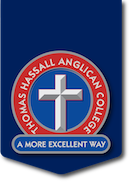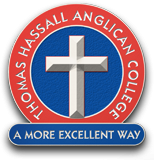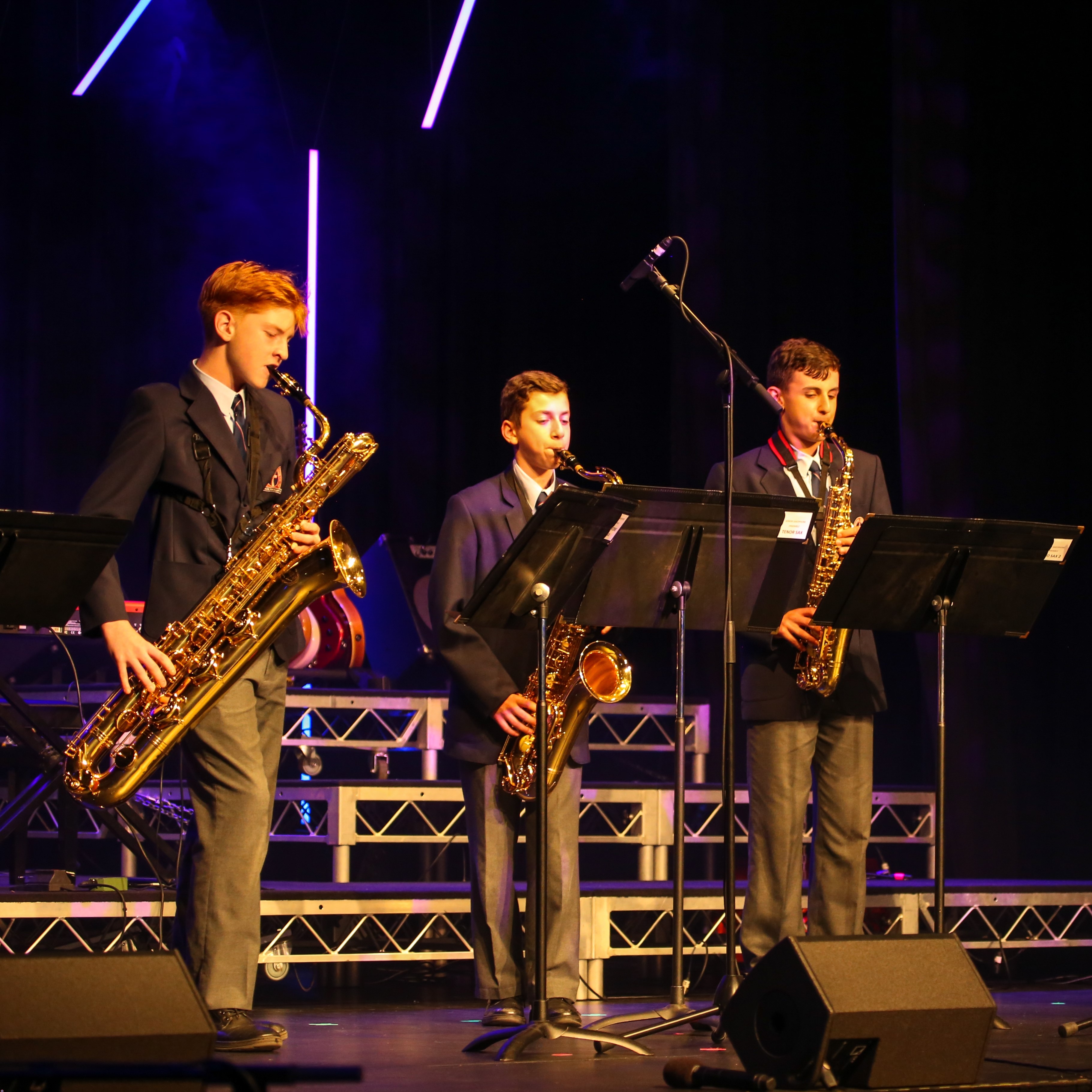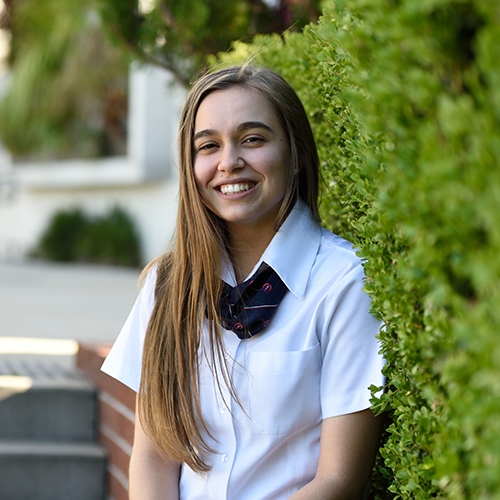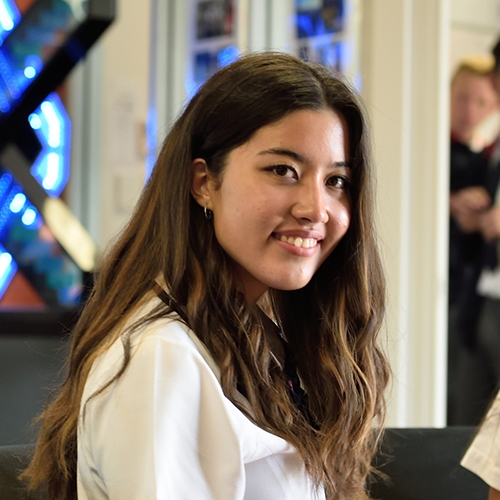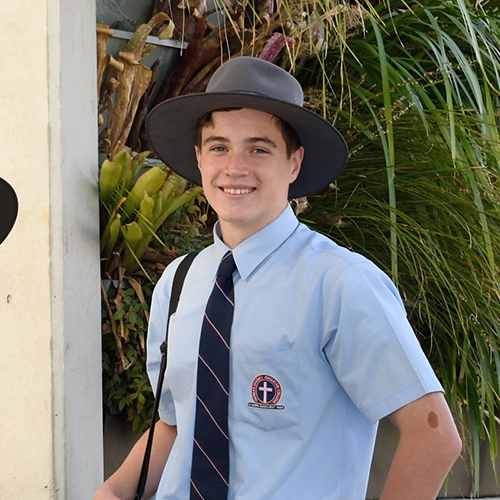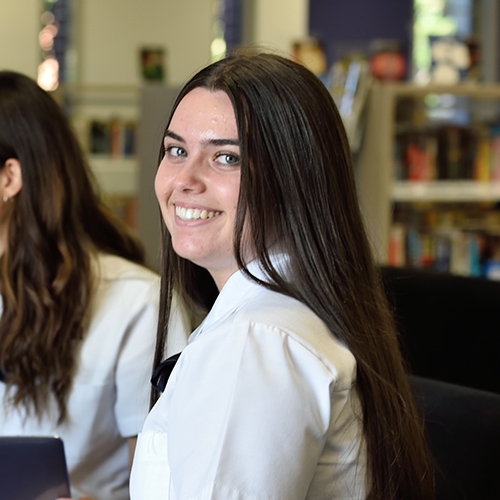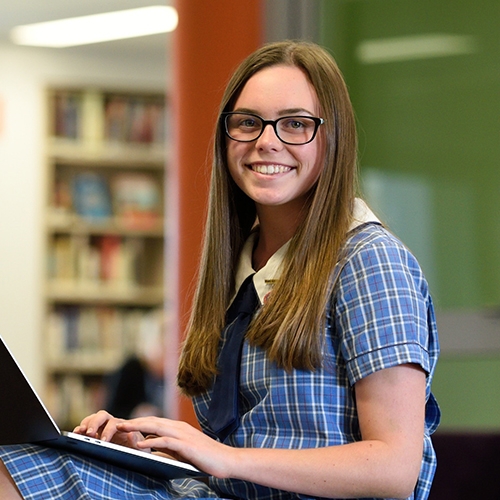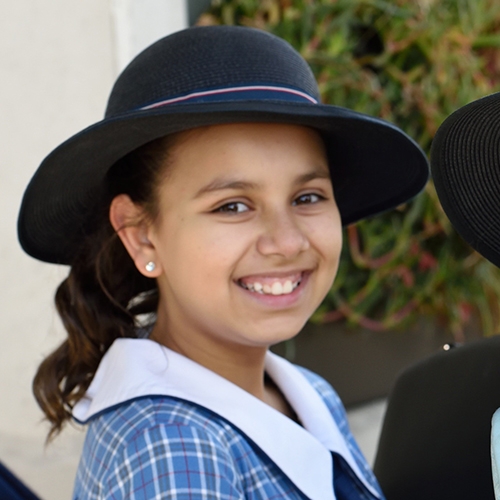Technology Requirements
Suitable types of devices for use at the College
For families looking to purchase a device for 2023, there are a wide range of options available. Issues including power and battery life, size and weight, connectivity and ergonomics should all be considered when purchasing a new device. As it is not practical to recharge laptops at College, a device which will provide enough battery life for a school day is required. It is important that the size and weight of the device does not make it difficult for students to carry around during the day. Devices that have 4G or 5G connectivity are not recommended as the College is unable to monitor student internet access on personal mobile devices using a 4G or 5G connection.
MINIMUM REQUIREMENTS FOR WINDOWS AND APPLE MACBOOK AIR/PRO LAPTOPS INCLUDE:
- Operating System – Windows 10 or MacOS 12 “Monterey” (or higher)
- Processor – Intel Core i5 or equivalent or Apple M1 (or higher)
- RAM – 8GB or higher
- Storage –256GB or more is recommended
- WiFi – WiFi 4 (802.11n) or higher
- Ports – capability for HDMI or USB-A connections. A USB-C to USB-A adaptor is required for College use, and a USB-C to HDMI adapter is also recommended.
- Display –12 inches with 1024 x 768 resolution or higher
- Keyboard – full QWERTY keyboard suitable for touch typing
- Audio/Video – headphone and microphone capabilities as well as an inbuilt camera
- Battery – sufficient battery life to last for the duration of a school day
Please note that Chromebooks and iPads are not suitable devices for the Senior School College laptop program. Multiple IT services will not work correctly on these platforms which is why they are not supported devices.
As we hope that any laptops purchased will be in use for multiple years, we suggest that students who anticipate future elective subject selection in Music or Creative Arts strongly consider an Apple-branded laptop due to better software compatibility for these subjects in Stage 5 and beyond. TAS subjects in Stages 5 and 6 also benefit from more powerful systems with i7 processors, additional RAM, storage, and dedicated graphics cards.
ADDITIONAL REQUIREMENTS
In addition to a laptop, students will also require:
- A pair of wired headphones that connect via a standard 3.5mm headphone jack. Individual headphones are necessary for external testing such as NAPLAN examinations. Wireless headphones are not suitable for external testing.
- A robust carry case for the laptop.
SOFTWARE
The College provides access to Google Workspace for Education, including Google Docs, Sheets and Slides. These applications are similar to the Microsoft Office equivalents of Word, Excel and PowerPoint. Students are not required to have Microsoft Office installed on their laptops, however, if students would prefer to use Office apps, the College can also provide a student licence of Microsoft 365 which includes downloads of several Microsoft applications onto BYOD devices.
It is recommended that families include devices on home insurance policies (such as accidental damage protection). The College policy through The Anglican Schools Corporation does not cover insurance claims on student personal items.
Students are responsible for the regular backup of their data. In addition to storing files on their laptop hard drives, students are strongly encouraged to use cloud storage such as Google Drive (provided by the College) to backup their data.
Should you have any queries regarding our laptop program, please contact Mr Samuel Mills via [email protected] for further information.
Frequently Asked Questions
Below is a series of frequently asked questions regarding the College technology program for students in Years 7-12. Please take the time to browse through as it might cover some of the questions you have been asking yourself.
Do you have a list of recommended places to purchase?
There are many retail outlets or online stores where laptops are available. Many of these are reputable and well known but Thomas Hassall is not associated with any particular store or outlet. We have investigated potential partnerships with suppliers and have found that it would be more economical for families to purchase the laptops themselves by researching available deals through retail outlets.
I already own a laptop. Can I use that?
Yes, as long as it meets the minimum technology requirement as stated above.
Does the device need a case?
Yes, a case will help protect the laptop and it will also help to identify it. There are a large number of protective cases on the market. It is best to choose a protective case that covers the whole laptop when not in use.
What other accessories will I need for the device?
It is recommended that students do have a set of compatible headphones that can be plugged into the device for classroom and personal use. In addition to headphones, students with a laptop may wish to use an external wireless mouse instead of the trackpad on a laptop.
What apps should I load so I am ready for College?
There are no apps or software that are required. The College provides access to Google Apps for Education (including Google Docs, Sheets, Slides and Drive) which is equivalent to Microsoft Office and the Apple productivity tools such as Pages.
How do I get my eBooks onto the device?
eBooks are available via the link on the Student Dashboard (dashboard.thac.nsw.edu.au). Students will be required to download every eBook for their subjects from the dashboard.
Is Thomas Hassall providing the students with lessons on how to use the device?
All Year 7 students complete one period per week of IT Skills. This class covers how to use the device, digital citizenship, cyber safety and several other IT concepts and skills.
What sort of Internet Plan do I need at home?
It is very important to check what type of Internet Plan you are on. Some plans charge you if you exceed your monthly download allowance. Others give unlimited downloads and slow your connection down if you exceed your monthly limit. Please check with your ISP (Internet Service Provider) for more information.
Do I need a wireless network at home?
Laptops are wireless devices. Thomas Hassall has ample wireless network coverage at College. However there are some things you might consider for home:
- If you already have a wireless network at home, the laptop will easily connect to this.
- Wireless routers or wireless modems which include a router are generally available for a reasonable cost.
How secure will my device be at College?
If a student is not using their laptop they should lock it safely in their allocated College locker. Please be aware that a student’s personal property, such as a laptop is not insured by the College, and the College does not accept responsibility for loss of or damage to a student's personal property. In this respect we suggest that if parents have concerns, they contact their insurer (or consider taking out insurance) and check the level of cover that may be available through home contents insurance, or associated valuables insurance. Some home insurance policies automatically include a level of cover that may be suitable to cover the loss or accidental damage to items such as laptops; other policies may have particular requirements.
What additional security measures have been put in place for all the devices?
As is the case with any student's personal property, it is the student’s responsibility to care for their laptop when they are at College. All students will have a locker while they are at College to safely keep their belongings.
Why would I need to use eBooks?
There are a number of advantages in having books loaded onto a laptop. For example, if the Maths book, Science Book, Dictionary, Thesaurus, Atlas, Bible and an English novel are uploaded to a student’s laptop, the weight of the College bag is decreased by several kilograms. Students will always have access to all those resources in class. We are negotiating with our textbook suppliers to access any electronic editions (eBooks) of our textbooks when available for use by Thomas Hassall students.
Will the device replace the diary?
No, students will continue to use the paper diary.
If the device requires recharging will there be adaptors available at the College?
A fully charged laptop should last all day at College day with "normal" usage (reading, emails, internet usage). Heavy usage (videos and music) will reduce the battery life considerably. We recommend that charging overnight is a best practice, ready for each morning.
Are the devices supposed to be carried to every class and in the locker other times? Do you allow students to go back to their locker, if they have sport or PE which does not require the device?
The device will be required in every class. Students will be required to store their devices in their lockers when they are not in use at recess, lunch, PE lessons, assemblies, chapel and sport unless they are instructed to do otherwise from their teacher.
Does Thomas Hassall have interactive style course work?
The College uses CANVAS to deliver interactive style course work.
Will students do their homework using devices? There is a concern that, if yes, they could accidentally lose/delete their work.
This will depend on work set by individual teachers. Students are encouraged to keep backups of their documents using the cloud based Google Drive. As with any computer or laptop there is always a chance of breakdown, theft or loss so backups are always advisable.
Since the students’ subject folders can get so heavy, can the device be used to store class work? What does the College envisage the future will bring to this aspect of learning?
In many cases, handouts and notes can always be scanned and kept as PDF’s on their devices for reference during the College hours. Google Drive storage can be used to keep documents and notes which can be accessed very quickly. While HSC and Tertiary exams are in written form, physical documents and note taking is important but in the future this may change.
Why doesn’t the College purchase laptops and students hand back at the end of the year, just like textbooks?
A laptop is a personal device, in much the same way as a mobile phone or iPad is set up for personal use. It will sync with your home computer and will have personal information on it. We do not believe it is appropriate to have this kind of device, accessing home networks, belonging to the College. We know your children will want to use the device in many places other than just at College, as will you perhaps. As a result we consider that the device should be your personal property rather than the College's.
What are my child’s rights in relation to the device? Can the teacher force a child to unlock their device and view contents?
When students fail to comply with the Student ICT policy and procedures, the College reserves the right to confiscate the device for serious offences. If the College is of the opinion that the device contains inappropriate material or that the material on the device could be used in an inappropriate manner, the Principal, Deputy Principal or a nominated teacher will request that the student show them the contents of the device. This will be done in the presence of the relevant Year Advisor, Faculty Co-ordinator or Executive staff member who will act as a support and a witness. Alternatively, the Principal or Deputy Principal may hold the device until the student’s parents are present before the contents are viewed. In extreme cases the assistance of police may be called. If inappropriate or offensive material is found stored on the device, consequences for breaching the College Behaviour Code will apply which may include detention, suspension and/or expulsion.
How will teachers control usage for non-academic purposes during class?
The laptop is an internet device and its use centres on information being available through a network. Wi-Fi access through the Thomas Hassall network will be monitored and controlled where needed. Teachers will monitor what is on the screen during class and periodically check what applications are opened simultaneously to make sure students are on task and completing set work. Laptops connected to personal mobile phones can operate outside the College’s control. There are simple procedures available and being developed for teachers to assist with the distraction of an electronic, web-connected device in the classroom. The simplest is “laptops face down" where all students place the laptop screen down on the desk. Students are asked to close all apps that are opened and only have the apps they have been asked to use open. If they do not comply, there will be consequences.
Why would I need to use eBooks?
There are a number of advantages in having electronic textbooks loaded onto the device. If for example, we upload the Maths textbook, Science textbook, History textbook, Dictionary, Thesaurus, Atlas and Bible onto a device for Year 7, 8 and 9 students, we decrease the weight of the school bag by several kilograms. Students will always have access to all those resources in class.
Can Thomas Hassall buy bulk e-novels like they do with texts or do they need to be individually bought?
At the moment, due to Australian distributor and copyright reasons, we cannot purchase e-Novels in the same way as e-Textbooks. In the future this could change with certain publishers.
Can eBooks on the device be downloaded to a computer at home?
The students are licensed to have a copy of each eBooks for one year except in the case of stage textbooks that apply for two years. This copy must be kept on students’ devices for classroom use at all times.
Should students download eBooks to make hard copies for study at home?
Due to copyright restrictions, students can only print 10% or one chapter whichever is the greatest of the total eBook. Hard copies can be borrowed from the IRC if they are available.
Can the device be used for more than eBooks so as to make full use of the device?
Certainly. The students will use it for keeping notes and handouts, using apps/software, reading library eBooks and surfing the Internet for both the College and personal use.
What textbooks replacements are available when a student forgets or loses their device?
A hard copy of a textbook can be loaned from the IRC in cases of emergency.
What does the College do to protect the students’ electronic property?
- For students with laptops, they are required to have their name on it or a photo of themselves on the lock screen of their device for easy identification.
- Students are required to keep their devices in their lockers when not in use.
- Students must have a password to protect access to laptops
Will assignments be notified online through devices?
Students will still receive a hard copy version of assessment notifications as well as being able to access a copy online through Edumate or Canvas.
What does the College do to keep students from being technology obsessed and not interested in other things?
Laptops are just one educational tool that the students will use during their time at Thomas Hassall. The College will continue to encourage students to take a balanced approach to their education and their lives. We will continue to place importance on personal relationships being at the centre of what we do. Laptops will be required to be stored securely at recess and lunch so students have a break from the devices. Learning is a social activity. We will continue to develop the personal and interpersonal skills of all students.
How can I block another student accessing my child’s device?
Every student should have a password for their laptop. Students are not to share this password with other students.
Why does Thomas Hassall have a hard copy diary when there are digital ones?
Thomas Hassall students use their hard copy diary every day to organise and plan their study. The College will be using Edumate and Canvas as much as possible as a form of a diary for the students in terms of assessment tasks and calendar of events.
What do parents do about the students using Social Media?
Social networking has become an important part of life for young people. Some students do find that using social media can be a time waster and detract from homework time and study time. Parents need to take an active role in helping their child prioritize their study time. Some suggestions are:
- Negotiate with your child so that they may use social media after study time is over.
- You may choose to negotiate and know all your student’s passwords for social media applications so you can monitor their use.
- Devices can be kept in a central location in the evening for charging so that students do not have them in their rooms at night.
- Wifi access to devices can be switched off or disabled for certain devices at certain times of the day.
These settings can be adjusted via the network router.
In Years 11 and 12, how does the College ensure that students have enough practice at writing by hand? Are notes typed in class? Will writing skills be prioritized due to the use of the technology? Should students be learning to type?
The HSC requires students to hand write for up to 3 hours. Currently all Year 7-12 in class assessment tasks are handwritten. This will continue to be the case until the structure of the HSC exam changes. In Years 7-10, notes in class will still be handwritten most of the time. Thomas Hassall will continue to encourage handwriting skills. Touch typing is an important skill that students are encouraged to develop, especially for external tests such as NAPLAN which is now conducted online.
Other colleges have social networking sites within the College. A closed Facebook site so the students can make their mistakes in a closed environment. Will Thomas Hassall have this?
Thomas Hassall has a Learning Management System, Canvas, on which students can access information about their College subjects. It hosts forums and discussion groups as well.
How is Thomas Hassall making sure that the students’ use of technology is not excessive and that they are not glued to their device instead of interacting in the playground?
Relationships are central to life at Thomas Hassall. We will make adjustments to guidelines based on our feedback from the students and observations from the teachers. Use of devices at recess and lunchtimes is limited as we want students socialising.
To what extent does Thomas Hassall monitor/block what the students’ access on their devices? What about Social Media sites?
Thomas Hassall monitors every single webpage that is accessed by a student through the network, regardless of which device they use. We block websites based on a variety of categories, and have a blacklist that includes sites like facebook.com. The College cannot monitor student use of their device if they use a 3G/4G connection using their phone.
How does the College achieve this and monitor its success?
We achieve monitoring and filtering of web content with an industry standard filtering tool. We measure its success by running regular reports to view recent trends in Internet usage and feedback from teachers.
Are the students directed to safe websites while at the College?
Teachers do direct students to specific websites, however most of the student’s web browsing is initiated by a search engine like Google. All of the websites returned by the search engine are filtered through our proxy server to ensure they are safe.
Knowing that Cellular (4G) versions of phones connected to laptops can bypass the College’s security, can that be blocked at the College?
No, this is not possible. This can be difficult to monitor. We ask that students with a cellular version of a device do not use them at College without teacher permission.
How can parents monitor/filter their students’ access to the internet at home?
There are a number of software solutions available, including Symantec, Net Nanny, Kaspersky, Family Zone and Mobicip. Many routers also have settings which can restrict access to certain sites.
Is there an app parents can download to help monitor their students’ appropriate usage and access to websites at home?
There are a number of options available. Family Zone is an excellent choice as it allows parents to manage their child’s screen time, keep content child-friendly, restrict social media and protect devices. More information about Family Zone is available at https://www.familyzone.com/au/
What do parents do about the students using Social Media when at home?
You can use one of the aforementioned approaches for filtering the Internet at home or take the device off your child.
What does Antivirus software like Norton Security stop?
Norton Security is a product made to protect your Windows (and now Mac OS X) computers from malicious attacks on the Internet (viruses, spyware, phishing, etc.) Certain editions even allow you to set parental controls.
Does the College work on devices need to be backed up at home?
Yes. As students have access to Google Drive through the College, they are encouraged to copy important files to it as a backup. Additional data backups can also be made at home.
Can Edumate and student email be accessed on the device?
Yes.
Will the use of devices be introduced into the Junior School?
Junior School students currently have access to a range of devices, including iPads for students in Prep-Year 2 and Chromebooks for students in Years 3-6.
Have other schools also introduced a technology program?
Yes, many schools in Sydney and around Australia have introduced technology programs into their school program.
Who will repair the device if it stops working or is broken?
Laptops can be repaired through the laptop manufacturer. The College is unable to perform or organise repairs of student devices.
What will happen if the device goes missing?
As is the case with any student’s personal property, it is the student’s responsibility to care for their device when they are at College. As a method of prevention, we are suggesting students identify their device with an image containing their name on the lock-screen wallpaper, or using name labels that can be stuck on the case of the device. If their device goes missing at College, they are to immediately inform a staff member.
